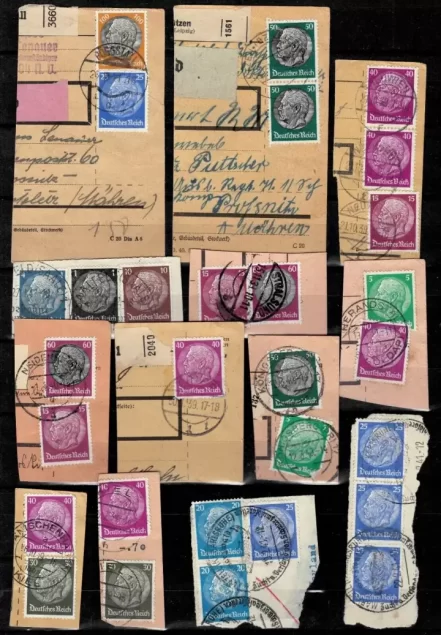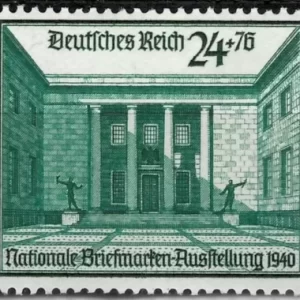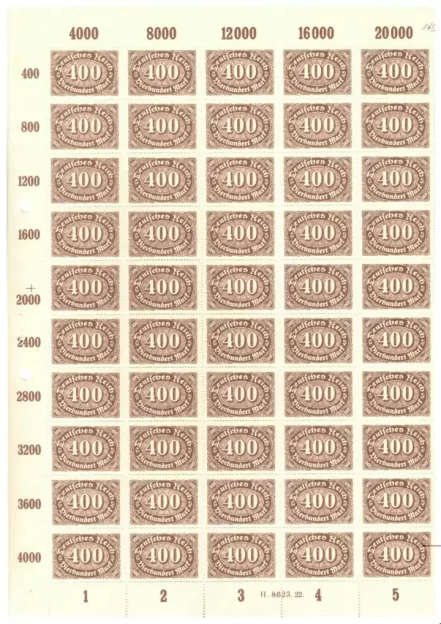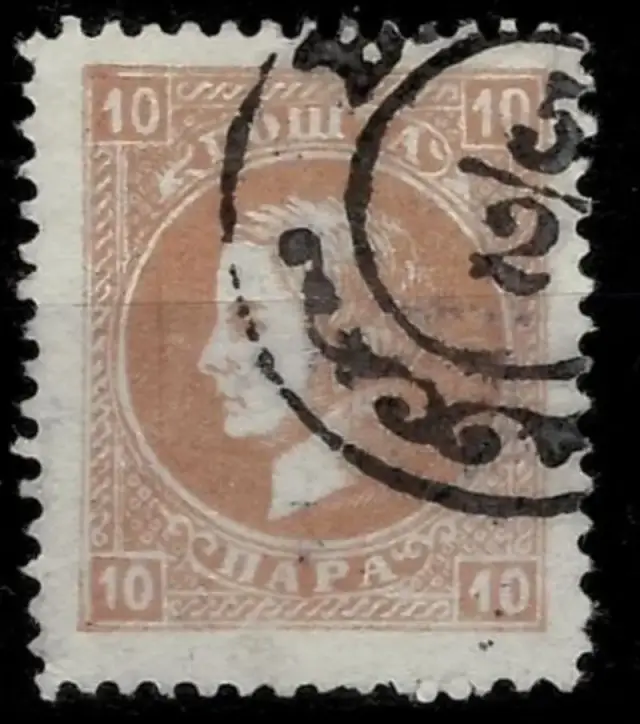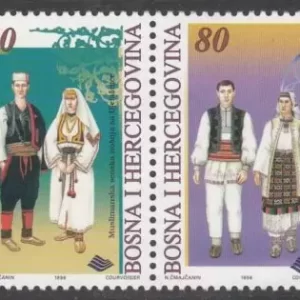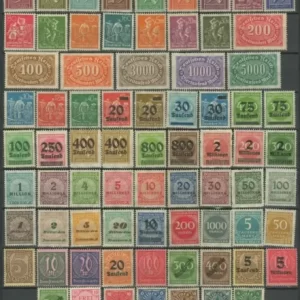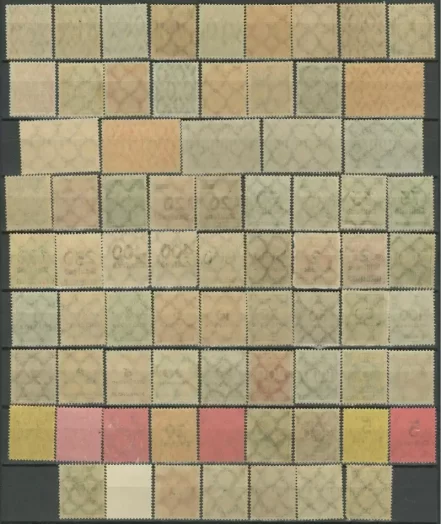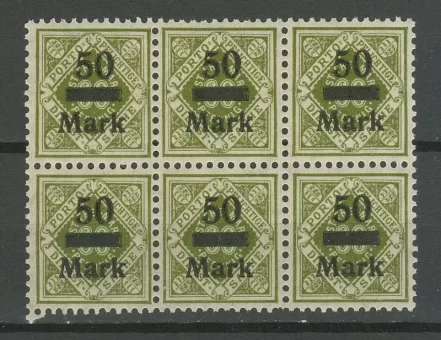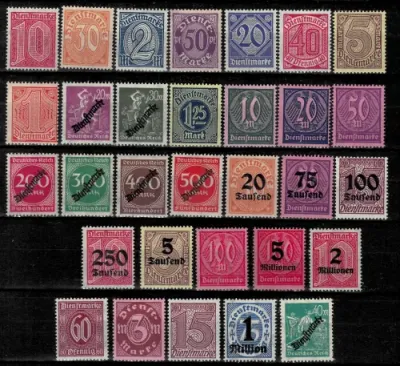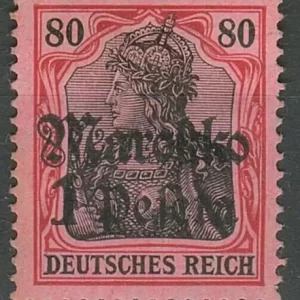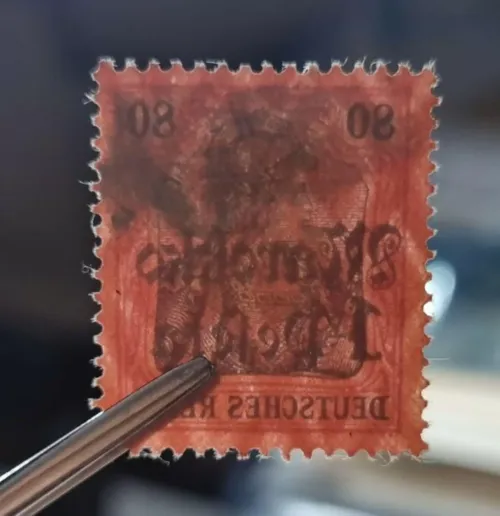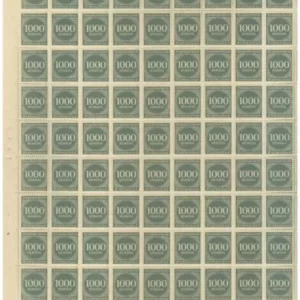Paul von Hindenburg, the second President of Germany, appeared on a variety of postage stamps issued during the early 1930s under the German Reich. These stamps are notable for their historical significance and distinctive designs. Here’s an overview:
Key Features of Paul von Hindenburg Stamps (1932–1935):
- Designs:
- Typically feature a profile portrait of Paul von Hindenburg.
- Surrounded by detailed ornamental frames, often with a laurel wreath or a simple border.
- Engraved style with sharp details.
- Denominations:
- A wide range of denominations were issued, catering to different postal rates.
- Common denominations include small values (like 1 Pfennig) and higher values for international postage.
- Colors:
- A variety of colors were used, such as green, red, violet, blue, and brown, each corresponding to a specific postal rate.
- Notable Series:
- 1932 Issue: Stamps issued during Hindenburg’s presidency.
- 1933–1935: Stamps continued to feature Hindenburg’s likeness even after Adolf Hitler became Chancellor in 1933. Some of these stamps overlapped with the transition to Nazi-era designs.
- Watermarks and Variants:
- Many stamps of this period included watermarks (e.g., swastikas or network patterns) and different perforation styles.
- Variants exist, including color shifts and misprints, which can affect their collectible value.
- Commemorative Uses:
- These stamps were used on both regular mail and special commemorative covers.
- Some were overprinted or modified later to reflect changes in government.
Collecting Tips:
- Condition Matters: Mint, unused stamps with original gum are the most valuable.
- Postmarks: Clear, well-placed postmarks can enhance historical interest.
- Rarity: Look for rare denominations, misprints, or overprints.

